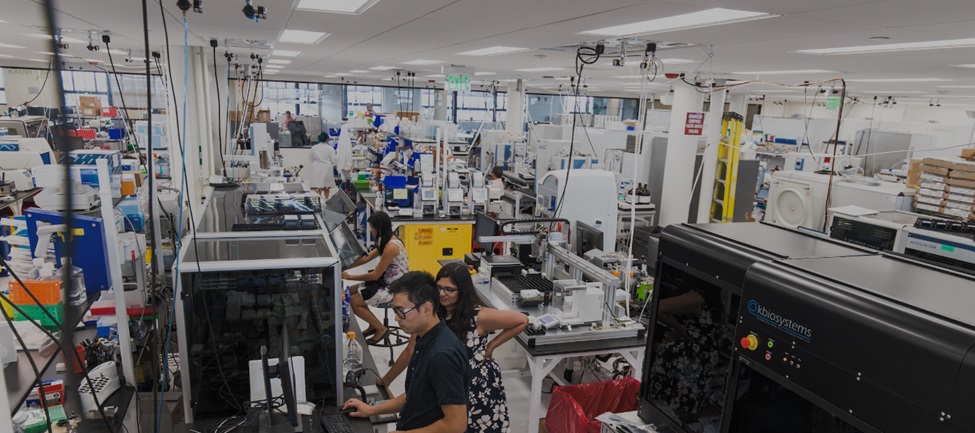This article examines the first quarterly index rebalance and reconstitution for 2024 of the ROBO Global Artificial Intelligence Index that underlies the $180 million ROBO Global Artificial Intelligence ETF (THNQ).
In the fast-moving environment of artificial intelligence, our quarterly rebalancing process is crucial to capturing the broader ecosystem. It also ensures that the index remains responsive to the latest developments. After all, technology leaders can be disrupted by new entrants and innovative solutions. The THNQ index adapts to reflect the changing landscape. The rebalance took place on March 15, 2024.
Our scoring framework assesses companies based on their revenue generated from business activities related to their assigned subsector(s), their investments in existing or new business areas, market share, addressable markets, competitive advantages, executive leadership, financial stability, and risk factors relative to their peers. Additionally, we evaluate each company’s technological capabilities, technical moats, patents, development pace, positioning, and innovation factor within their specific theme and subsectors.
The index is advised by world-leading experts in artificial intelligence. That ensures THNQ remains at the forefront of the AI revolution and continues to provide investors with exposure to the most promising companies in this dynamic field.
The changes are as follows:
THNQ Index Rebalance: Additions
Gingko Bioworks (DNA)
Ginkgo Bioworks consistently demonstrates its ability to attract blue-chip customers across industries and achieve significant milestones. In the fall of 2023, the company announced a strategic partnership with Google Cloud to leverage generative AI for bioengineering and biosecurity applications.
This collaboration aims to accelerate the development of innovative solutions in multiple critical areas for society in large markets. Such areas include agriculture, material science, and healthcare, which is increasingly focused on. This positions Ginkgo Bioworks at the forefront of AI-driven bioengineering. Additionally, it recently acquired key talent and IP from Reverie and Proof Diagnostics (co-founded by gene-editing pioneer Feng Zhang of the Broad Institute).

Source: Ginkgo Bioworks
Furthermore, on the biosecurity side, Gingko Bioworks just hired (announced March 18) Mitch Wolfe, MD, MPH, RDML (ret.), USPHS as VP of global engagement and governance for U.S. and international partnerships. He previously was chief medical officer for the U.S. Centers for Disease Control and Prevention, leading global strategy.
THNQ Index Rebalance: Deletions
Twilio
Twilio is a communications-platform-as-a-service technology that has been in THNQ for some time. While the company still maintains market share (highly penetrated), many elements of Twilio’s technical capabilities are being engineered by other companies that are gaining in these areas. Companies like ServiceNow are also entering into their territory (e.g., announced Telco Partnership with AT&T last year).
The rise of large language models (LLMs) also poses challenges. As more companies gain access to powerful conversational AI, Twilio might face increased competition from new entrants leveraging LLMs to offer similar or superior services. Additionally, the democratization of LLMs could lead to a commoditization of certain AI-driven communication services. This has the potential to impact Twilio’s pricing power and market differentiation.
Atlassian
Atlassian’s product suite is primarily designed for classic software development paradigms. As such, it faces potential challenges in the shift toward an AI-centric technological future. It has a certain amount of dependency on its license-based model and its suite of tools centered around collaboration and project management. As a result, it may not readily adapt to the fast-evolving demands of AI integration.
The company’s cloud transition and API offerings suggest a path to adaptability. But these measures might not suffice to overcome the structural and strategic shifts required for effective AI deployment. This situation calls for a critical assessment of Atlassian’s position in our index. This is due to the accelerating pace at which industries are adopting AI-driven technologies. We are more bullish on observability and big data plays.
iFlytek
iFlytek’s exclusion from the THNQ index is primarily influenced by the considerable disruption and innovation in the translation and natural language processing sector. That’s an area where it once held significant strength. This evolution has been markedly driven by advancements in LLMs and generative AI. Technologies such as OpenAI’s Whisper are setting new benchmarks.
While these developments herald a broader democratization across competitive landscapes, iFlytek’s growth trajectory has been constrained. Increasingly, the company finds itself limited to the Chinese market, facing challenges that hinder its ability to expand globally. This situation contrasts with the criteria for inclusion in the THNQ index. This index values innovation, global market potential, and the ability to navigate the complexities of rapidly advancing technological fields.
For more information on the methodology of the ROBO Global Artificial Intelligence Index, please visit the index’s home page.
For more news, information, and analysis, visit the Artificial Intelligence Channel.
VettaFi LLC (“VettaFi”) is the index provider for THNQ, for which it receives an index licensing fee. However, THNQ is not issued, sponsored, endorsed or sold by VettaFi, and VettaFi has no obligation or liability in connection with the issuance, administration, marketing, or trading of THNQ.

